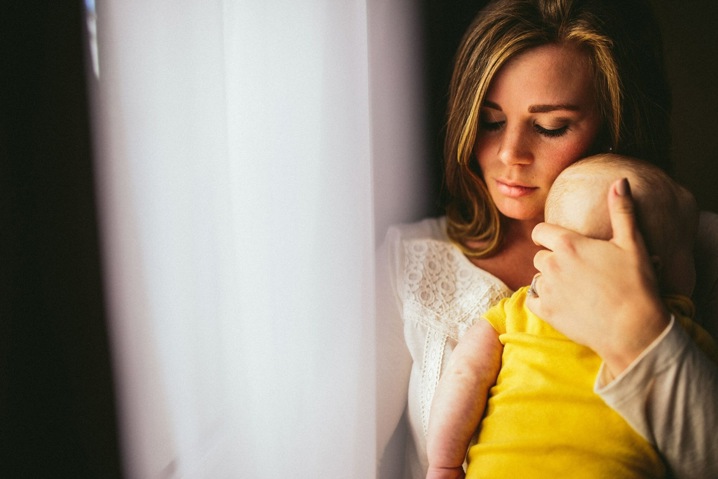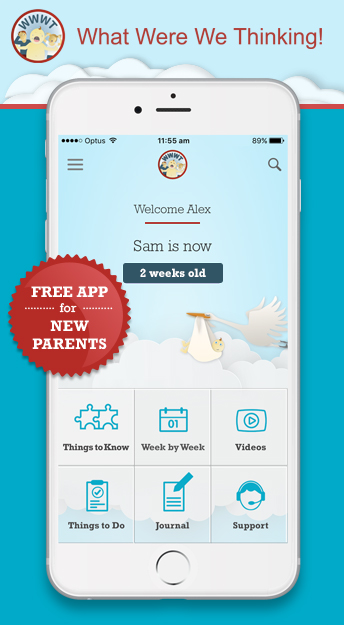Sometimes coping is doing just fine

Becoming a new parent is a time we associate with excitement and fulfilment. Welcoming a bundle of ‘joy’ into the world is meant to the happiest time of our lives.
However it’s important to acknowledge that just like any time in our life when we experience significant change – in this case, parenthood – the adjustment period will have both its ups and its downs. No matter how many books you read, classes you attend or well-meaning pieces of advice you receive from other parents, friends and family, having a baby is a change which brings unexpected emotional reactions.
Many new parents face physical exhaustion, psychological exhaustion and at times, relationship conflict. It is important when experiencing any of these to remember that on some days, ‘coping’ - rather than ‘thriving’ - is good enough.
Below are a few ideas to help you cope (and hopefully thrive!) with a new baby:
- Identify and make a list of the changes that have happened to you. Recognise the things that cause you the most distress and tackle these through discussions with your partner, family, friends, a doctor or a psychologist.
- Recognise your losses (e.g. your former identity, your leisure time) and honour your emotions towards them. Jot down ways you can adjust to your new life as well as partake in some time out for ‘you’.
- Name your needs (e.g. time alone, help with the 3am feed, someone else to cook dinner) and think of ways to have these needs met.
- If you have a partner, discuss how you plan to share the cleaning, the cooking, paying the bills and caring for the baby. Also plan time make time for each other and enjoy some alone time without bub.
- If you’re a new mum, expect changes in your body's shape, appearance and functions. If you are finding the change difficult, allow time for self-care and kindness (e.g. have your nails done, have a long bath)
- Don't feel guilty for having negative thoughts and feelings – changeable emotions are a normal part of adjusting to a major life change.
How to cope with an unsettled baby
Babies vary in the amount and intensity of crying in their first year. Parents most commonly assume crying means the baby is either hungry or in pain, but a lot of the time crying is difficult to explain.
"Unsettled" is the commonly used term for babies (up to 12 months old) who:
- cry for long periods
- cry and cannot be soothed
- have difficulties settling to sleep
- wake after short sleeps
- wake up often during the night
Research confirms a woman feels more capable if her baby quietens to her soothing, suckles easily, gains weight and smiles responsively. Her confidence is lower if her baby cries for long periods and is difficult to settle or feed. On top of this response, frequent overnight waking and insufficient sleep leads to fatigue, slower decision–making, poor concentration and poorer mental and emotional wellbeing.
If you are struggling with a crying baby and feel at a loss as to what to do, seek support and help from a health professional rather than letting yourself get over tired and over stressed. Let other people, family or friends, help you. Let them in so you can rest, be by yourself in the garden or at a cafe or have time just with your partner.
You can also use the What Were We Thinking! e-resources to learn settling techniques for effective settling of a baby, either at www.whatwerewethinking.com.au or via the What Were We Thinking! app, available to download for free on App Store (iOS) and Google Play (Android).
Fiona Darling is a Social Worker and Senior Project Officer at Jean Hailes for Women’s Health. Jean Hailes for Women's Health develops and undertakes innovative research, education and clinical programs to promote the development and implementation of key health strategies for women. Good mental health for women is an important area of this health strategy. For more information visit http://anxiety.jeanhailes.org.au/
Posted in: A new reality Baby 0-4 weeks Baby 5-8 weeks Crying settling sleeping Health Professionals Your needs








